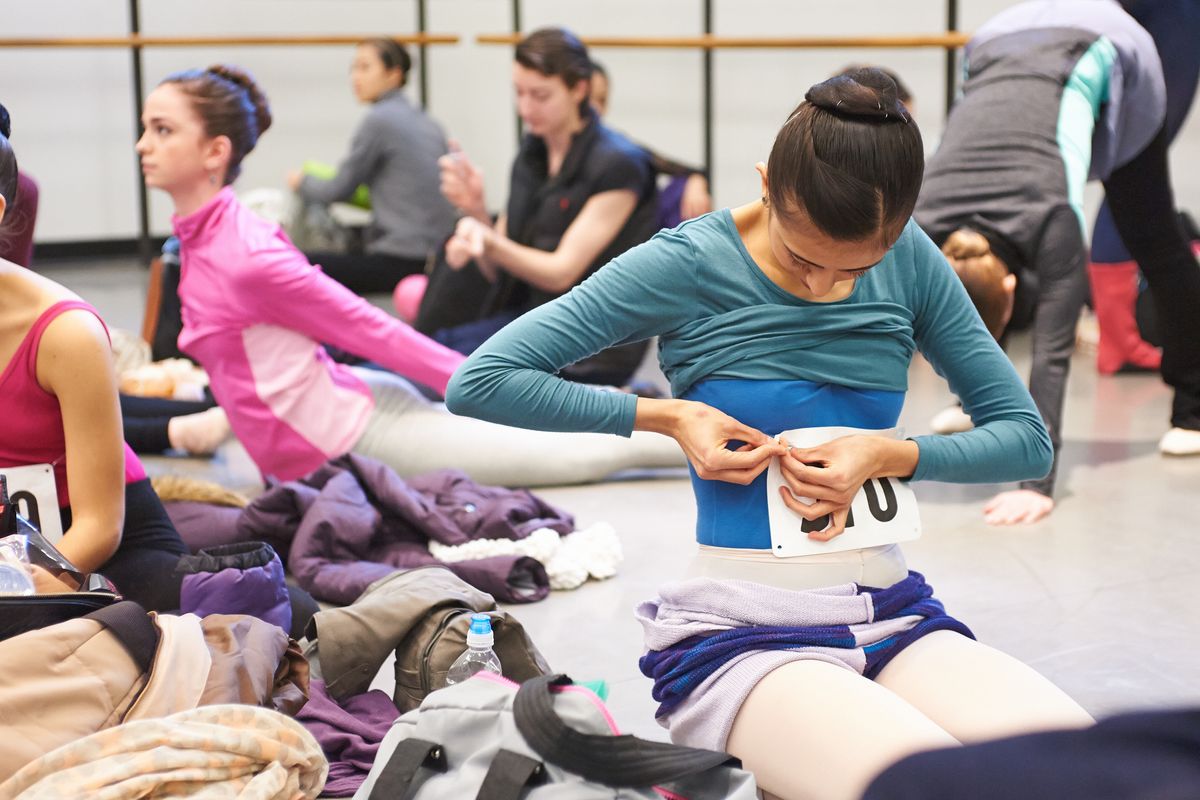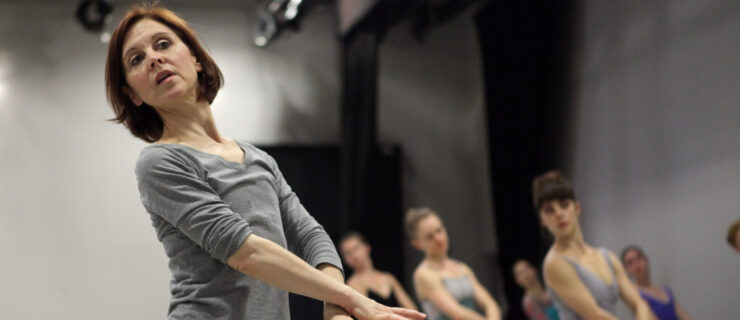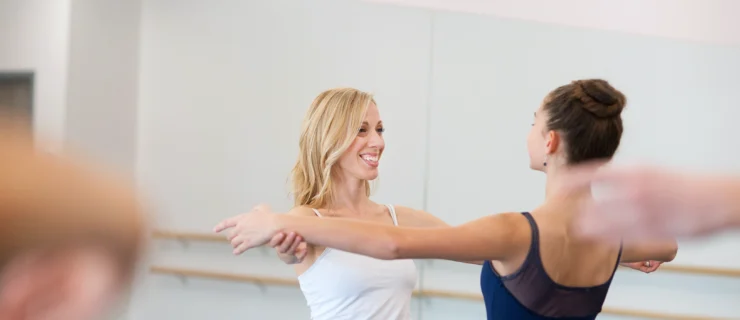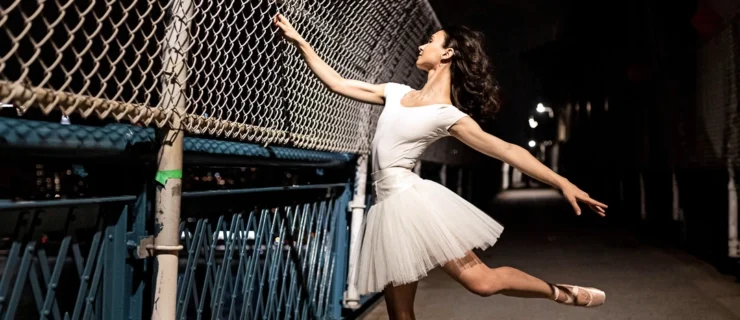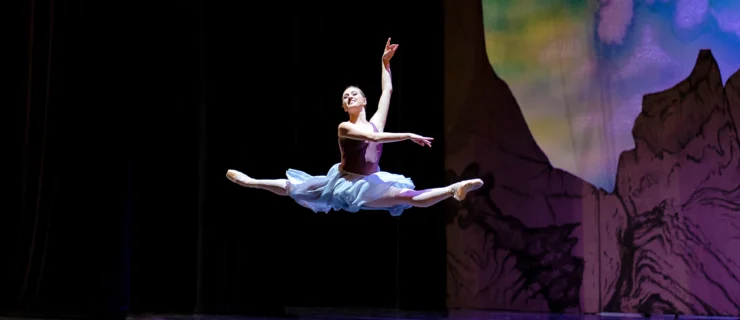Upping the Stakes: How to Mentally Prepare for Your First Company Audition
Pittsburgh Ballet Theatre corps member Victoria Watford recalls the first time she auditioned for the company: Even though she had attended PBT’s summer intensive several times, the Cleveland native felt completely unprepared. “I was treating it like a summer intensive audition,” she remembers. “There was an energy in the room of a lot of people who are ready to be professionals and are confident in their dancing. If you’re not ready, you will feel it.” Watford wasn’t offered a job, so she took a place in the school’s graduate program. Over the next two years she pursued company auditions until she ultimately landed her spot at PBT.
When you first start auditioning for companies, the stakes can feel so high. Your entire training experience has led you to this point, yet many dancers are surprised by the differences they find in a company audition setting. In addition to the various ways they’re structured, you’ll be treated with the frankness reserved for an adult professional. While you’ve been tackling the physical impossibilities of ballet for a decade or more, here are some tips on how to mentally prepare for your first audition season.
Don’t Limit Yourself

rawpixel via Unsplash
When deciding where to audition, try not to tether your expectations to a short list of high-profile companies. “When we talk to our students, 10 of them will list the same companies they want to dance for,” says Pacific Northwest Ballet School managing director Denise Bolstad. “The ones who are open-minded are the most successful.” A rejection will only hit harder when you have limited your options. “We have had students get into small companies who went kicking and screaming, and three months into it they are happy,” says Bolstad. “They are doing lead roles, they love the city. Be open-minded if you really want to dance.”
Be Ready for Anything
When it comes to open-call auditions, Watford says, “there are no rules.” While summer intensive auditions follow a somewhat predictable ballet-class formula, with each group rotating by number to give everyone a moment at the front, company auditions can vary. Class may be heavily abbreviated (so come warm) and can include cuts after barre and during center. You may also be asked to learn repertoire, perform a variation, improvise or demonstrate your partnering skills with a dancer you’ve never met. Be prepared for anything, and try not to let the “unknown” rattle you.
An invitation to audition via company class will increase your chances of being seen, but this, too, can be daunting for first-timers. “A downside is that you are auditioning beside dancers who all understand what the director wants,” says Ballet West corps member Lillian Casscells. It can also be nerve-racking to figure out where to stand at barre or to know when to go to the front in center. “It helps to find a friendly face,” says Casscells, who recommends asking a company member where you should stand. “Usually the dancers are very understanding, and they will allow you to go to the front for a few combinations in center.”
Leave Your Emotions at the Door

Dancers at a Ballet West audition
Jim Lafferty
It is imperative that you separate your sense of self-worth from the outcome of any audition. “I try to remind our students that this is much more practical than they think,” says Bolstad. “It’s a job interview. Go into it with great confidence and rely on your training.” She adds that cuts aren’t designed to be hurtful, but for efficiency, since directors can’t objectively look at 200 people at once. And when directors say they only have one or two openings? Believe them. “They have a strict budget,” says Bolstad. “They can’t always hire you even if they really want to.”
The very nature of ballet training may leave you scanning the studio to size up the competition, but remember: A dancer’s most impressive stretches before class have no bearing on her audition success. “Don’t focus on everyone else in the room,” says Watford. “Focus on yourself and what you do best. Wear things that make you feel confident and put your best foot forward when you can.”
“Thanks, But No Thanks”
Rejection is more common than good news and comes in many forms. Whether you receive radio silence after you send in audition materials, get cut from a cattle call, or hear an unenthusiastic “We’ll be in touch” after taking company class, it is going to sting.
Try not to take it personally; the faster you can separate an audition rejection from your sense of self, the more successful you will be. “Most of the time it’s not about you. It is just the opinion of one person in the front of the room looking for something very specific that day,” says Watford. Casscells agrees: “It’s so hard because we are trained our whole lives to be acutely aware of every single flaw.” But she adds that the odds that you have exactly what every director is looking for is slim. “I’m not saying that to be discouraging. Rather, it’s a weight lifted off your shoulders knowing that a rejection is not because of something you did, but because you didn’t fit into a specific folder.”
Don’t lose sight of what you have already accomplished. “You have picked one of the hardest professions in the world, and you have already come so far,” says Bolstad. “You should be tremendously proud to have gotten to this point.”
Keep Your Head in the Game

Sarah Pflug via Burst
We asked Brian Goonan, PhD, a dance psychologist based in Houston, for advice on staying mentally strong during auditions.
Look at the big picture.
It’s natural to be worried about rejection. Do your research and apply to numerous companies that may be looking for what you have to offer (and not just dream companies). Let your strengths and ability be your selling point, because there isn’t much else you can control in an audition setting.
Visualize success.
Picture yourself dancing your best before you enter the studio. Feel it. Visualize completing difficult steps successfully. It allows you to prime muscle and movement sequences without having to practice them in the studio.
Self-care is crucial.
Proper sleep, eating habits, stress management and relaxation allow a dancer to have full access to the physical and emotional resources they will need to perform comfortably at their optimal level.
Set reasonable goals.
Goals are best designed when they involve input, not outcome, since outcomes in the dance world are based on the subjective appraisals of others. For example, rather than setting an objective to be hired by a specific company, focus on applying last week’s pirouette correction during your audition class. “Best” needs to be determined by the dancer, not the evaluators.
